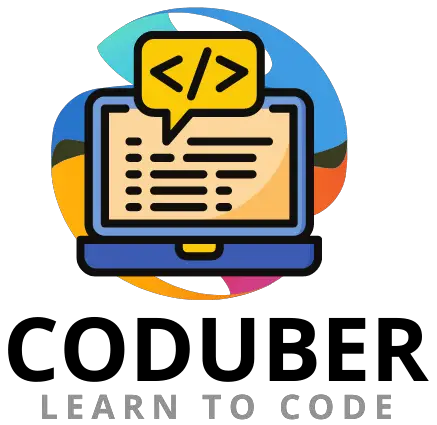On the surface, Java and Kotlin seem to be quite comparable programming languages, at least in terms of what they can accomplish and how.
Both Kotlin and Java are cross-platform, object-oriented, and open-source languages. They may both run on any platform that has a Java Virtual Machine (JVM) and are free to use.
They also have comparable syntax. What’s more, they can import Java code into Kotlin and vice versa since they are compatible. But this is also the point at which there are variations and a reduction in similarity.

What is Kotlin?
Kotlin was first launched in 2017 by a JetBrains team to increase productivity when developing in Java. 2018 saw Kotlin become its official programming language shortly after. Introduced as a Java substitute for mobile development, Kotlin received backing from Google.
Kotlin is a statically typed programming language that runs on a Java virtual machine (JVM) and web browsers alike. It may be turned into JavaScript. To create cross-platform apps, an Android developer can utilise an IDE and write code in Kotlin or Kotlin Native.
Kotlin’s Features
Short lines of code are reduced by developers using Kotlin, a succinct programming language. Kotlin uses its safe call operator. to handle NullPointerException and null references as it is a null-safe language. Kotlin supports main and secondary constructors and compiles rapidly.
Java code may be called from Kotlin thanks to an interoperable language feature. It may also use the full power of the Kotlin type system to generate external declarations for JavaScript libraries.
Because it can be written in and converted from Java using IDEs such as IntelliJ, NetBeans, Eclipse, and others, Kotlin is a tool-friendly language. Lastly, Kotlin has a smart cast feature that lowers the cost of the program while improving speed and functionality.
What is Java?
A versatile object-oriented programming language, Java is easy to use, strong, and powerful. It can be used for a wide range of tasks, including embedded devices, large data, web, server, and Android app development and management.
While Sun Microsystems, now a part of Oracle, first published Java in 1995, the majority of its features are open source. James Gosling, the language’s creator, called it Oak after an oak tree that was outside his office when it first emerged.
Because Java is platform-independent, which means that Java programmes run on any platform, it is the ideal language to use for developing Android apps. Java has an API in addition to its own runtime environment, the Java Runtime Environment.
Java’s features
Due to Java’s dynamic nature, programmers can alter the structure of their programmes while they’re running. Java has several security capabilities, in addition to Spring Security-related frameworks like Spring and Spring Boot.
Unlike C++, Java is a multi-threaded language that enables memory management and has an integrated garbage collector. Java’s network-centric design makes it easier to do distributed computing and allows for caught-on-occurring verified exceptions.
Java is well known for its “write once, run anywhere” (WORA) capability. Java’s portability allows it to be used on any platform. Once created, static members in Java can be shared by all class instances.
Kotlin vs. Java
Coding speed
Java and Kotlin both offer about the same coding speed.
Because Java has more coding processes than Kotlin, a developer can solve problems faster. To put it another way, a developer may write less code with Kotlin because of its greater laconic constructs.
When compared to Java, Kotlin has a larger cognitive burden since solving a task takes longer to complete. Kotlin is the best option if you’re an abstract thinker.
The result of the Kotlin vs. Java coding speed comparison is a draw since there is not a discernible difference in coding speed between these two languages.
Consistency
We may observe that Kotlin and Java differ significantly in terms of stability.
For a considerable amount of time, Java has been used in development scenarios. Versions like Java 8 and Java 11 have long-term support, which means that programmers may address issues with these versions by creating patches. Java is available for free download in a number of variants for developers.
Even though Kotlin is a well-established language, at the time of writing, it is still less popular than Java and does not have any versions with long-term support. While Kotlin and Java are both regarded as stable languages, Java is ultimately thought to be more reliable.
Achievement
It is challenging to compare the memory use of Kotlin and Java because they both compile to ByteCode, which is executed on the JVM. As a result, it is challenging to gauge, monitor, and contrast their performance.
Kotlin is more functional than Java because of its additional capabilities. Additionally, working with multi-threaded apps is made easy with Kotlin’s Coroutines utility. However, because of its large feature set, Kotlin executes and compiles a little more slowly than Java.
Nevertheless, Java compiles more quickly than Kotlin since it is simpler and has fewer features than that language. The performance-based contest between Kotlin and Java is likewise a draw because of the little difference between them.
Record-keeping
Though there is a tonne of material available for both Kotlin and Java, Java has been around for a while, so it is simpler to locate a tutorial for it.
Oracle offers official documentation for Java, which is often regarded as the easiest programming language to learn.
However, even though Kotlin is a relatively new language, we think the official documentation is enough to understand how to use it, thus this is also a draw.
Conclusion
If you are creating an Android application from the ground up, you might want to give Kotlin a try. It is simple to use, safe, and clean. With features like support for coroutines, it’s perfect for developing Android apps that manage a lot of complicated background stuff.
Furthermore, Kotlin code is supported natively by Android Studio, which simplifies the process of incorporating various features and plugins into your Android app.
